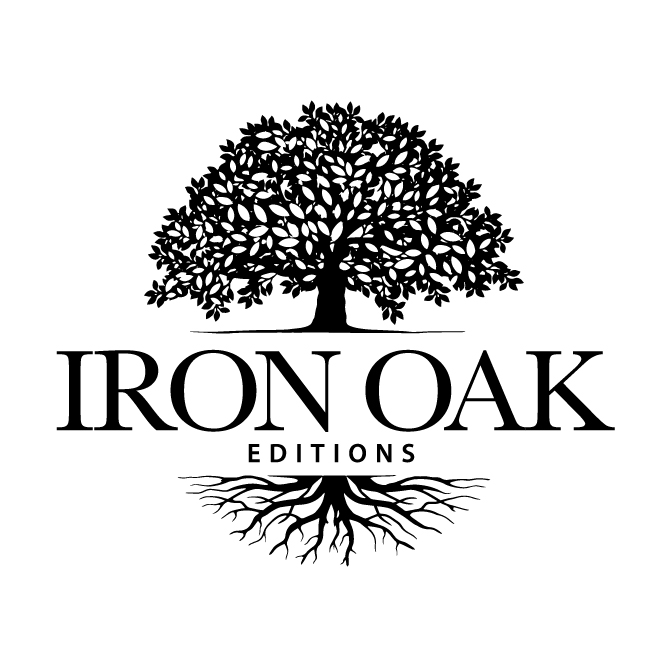by Toti O'Brien
April 2, 2024
Toti O'Brien is the Italian Accordionist with the Irish Last Name. Born in Rome, living in Los Angeles, she is an artist, musician and dancer. She is the author of Other Maidens (BlazeVOX, 2020), An Alphabet of Birds (Moonrise Press, 2020), In Her Terms (Cholla Needles, 2021), Pages of a Broken Diary (Pski's Porch, 2022), The Past, Ineffable (Cholla Needles, 2023), Odd Arcana (Cholla Needles, 2023), Alter Alter (Elyssar, 2024).
The Blue Mimes by Sara Daniele Rivera; Graywolf Press; 96 pages; $17.00.
Rivera’s award-winning collection The Blue Mimes is a quasi-bilingual book. The author interweaves Spanish and English in unusual ways, creating new and compelling polyphonies. Spanish fragments intersect the English verse; sometimes, the entire poem exists in both languages, either side by side (justified left and right, outlining the in-between hourglass shape of the negative space), or else vertically juxtaposed (at midway, the Spanish takes over, echoing the English text in reverse, unraveling it like Penelope’s canvas). Sometimes (in the title poem, among others) the same section bookends the whole, once in each language—two-faced Janus, guarding the gate.
Rivera’s unique brand of bilingualism amplifies a dichotomy implied by the title and then thoroughly excavated, page after page, with great, clear-eyed bravery. In the second poem, for instance, Spanish and English are halves that should fit but have shifted away, leaving the ragged edges of the cut exposed. Rivera often returns to this bisected feeling. It is her depiction of loss—a peculiar one, rarely pinpointed. When the “missing” and the “remaining” parts weigh the same, which one should be repaired, which one discarded? Also, the identity of halved units necessarily blurs. Which of them is present, which absent? Which is me?
Early in the collection, “The Split” summarizes most of Rivera’s motifs, lingering on the cracks that double as fracture and suture lines, both separating and mending, evoking the hazy ghost of a missing twin that will further appear in “Rompecabezas.” Is she dream, is she real? Is she an ancestor? Is she a myth of origin, as a following poem (“Quilla”) states?
[...] In the before of our family
twin sisters died, one at birth the other
something to do with an earthquake. Nameless halves of a swept unit.
Besides the eloquent imagery of the twins, halves appear in several shapes: halved hearts, heads, rocks, halves of a Rorschach test.
[...] When
we woke we were not butterflies, not people. Only
the center of a cleaving.
So do clones and replicas. “We fit on a twin daybed.” “Now I look at twin staircases.” “On the worst night of our lives every mattress tunnels, doubles as if meeting a mirror.”
Dual/halved iconography might be the most apt metaphor to express diaspora, displacement, multicultural roots, multilingualism. The first poem of part II revealingly explores the idea of mother tongue. It declines all the meanings of the verb abrigar (to protect), hence describing the basic acts of containment and nurturing that a parent performs toward a small child. The author leads us through the physicality of sounds, textures, cadences, intonations of the language first learned in a context of affection and care—shows us how they become anchor and shield.
But protection deserts those who lose their parents, home, language, or homeland, and chronic vulnerability ensues. Perhaps, that is the root of the shattered imagery, as whatever is stripped of its natural shelter, its organic husk, becomes prey, prone to be parted, broken, undone. From “Poem for a Scorpion Child”:
Admit it: you were the child who cried too much. You
lacked a layer. You wanted to be a scorpion
but you weren’t a scorpion.
You were whatever an exoskeleton protects.
Soft interiors.
Without ever detailing her or her family’s story, Rivera openly addresses the immigrant condition—in particular, the anguish experienced by US immigrants under the Trump administration, focusing on what children detained at the borders had to endure. When we lose “the country we thought we could belong to,” “[...] the body on its own is a vulnerable house.” From “Convento Santo Domingo”:
[...] I am apart from this city. Every
city. I am not who I am and maybe
this is vertigo, terror. [...]
At times, sundering morphs into annihilation. The author isn’t afraid to expose the internal damage—rather, devastation—due to eradication and chronic longing. Between what was and what isn’t yet, isn’t quite, the split self dissolves into the negative space. Although halfness, no doubt, symbolizes the state of who’s simultaneously here, there, and ultimately nowhere, I feel that Rivera’s twins also embody the two faces of grief—loss and survival. The author spells out both in kaleidoscopic fashion, capturing them from a variety of angles. From “Naufragios” :
one after another you lost the people you loved as if they occupied
a single vessel and entered
the destructive radius of a storm
If loss is pervasive, indelible, ravenous, its other is ambiguous, elusive. From “Sol”:
Since you died I take tiny, redundant steps:
and, a, an. Articles with which I predicate
my survival.
Loss repeatedly hits, survival is constantly re-learned and yet, at a visceral level, the whole book is a eulogy to Rivera’s father—whose figure, intermittently sketched, ties it all like an invisible thread. As if slowly assembling a puzzle, we don’t see the paternal icon emerge until late, when—at once—it acquires weight and definition. Skillfully, the author succeeds in illuminating her subject by elusion, keeping it in the blind spot of the reader’s eye.
“Bird Sanctuary” opens part III with an ars poetica focused on what it takes to write poems with wings “weighed by something wet, blood or birth or refuse.” Here, the pivoting motion that matured in small, subliminal fits is achieved. The sagittal cleft of the self (expressed by the twins’ metaphor) shifts of 90 degrees and the father, above, becomes the missing half.
[...] pain moves in two directions. My father who will not meet my children never knew where his own father was buried. It fractured him sometimes, that pain no longer bird [...]
The father-child relationship is reflected by that of the father-and-grandfather, also marked by distance and loss: “you were brackets on either side of water.” A tilted mirror now reveals how past, present, future rebound. “Your father. You. My father.” Later, a few words—in a poem that Rivera and her dad have translated together—refer to “an emptiness left behind by a father who died too soon. You said the poem reminded you of your dad. One day it would remind me of you.” Again, pain moves in two directions. It loops over itself, digging cavities of absence that fill up with echoes—as if the void left from missing substance (body, contact, skin, presence) inevitably birthed song.
Where’s the poison, there’s the antidote, in The Blue Mimes. Fracture lines become suture lines in Rivera’s poems, as she delves into the open wounds, then patiently mends them with minute, meticulous stitches.
__________________________________________________________________________________________________________________________________________________________________________
__________________________________________________________________________________________________________________________________________________________________________
__________________________________________________________________________________________________________________________________________________________________________
__________________________________________________________________________________________________________________________________________________________________________
Suturing Two Halves to Begin Anew with Sara Daniele Rivera's The Blue Mimes
POETRY REVIEW
__________________________________________________________________________________________________________________________________________________________________________
© 2024 Iron Oak Editions
Stay Connected to Our Literary Community. Subscribe to Our Newsletter





